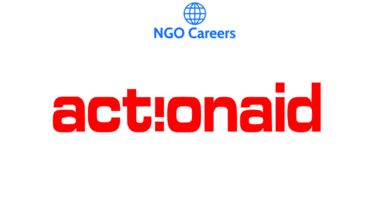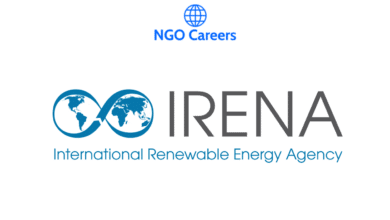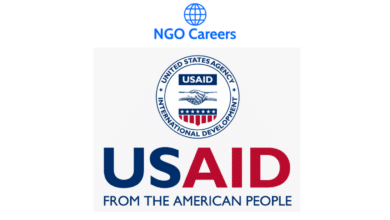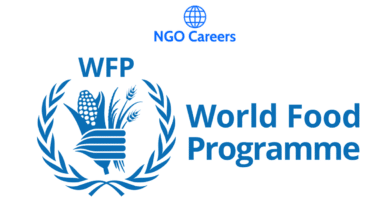UNDP Data Analyst – Home Based
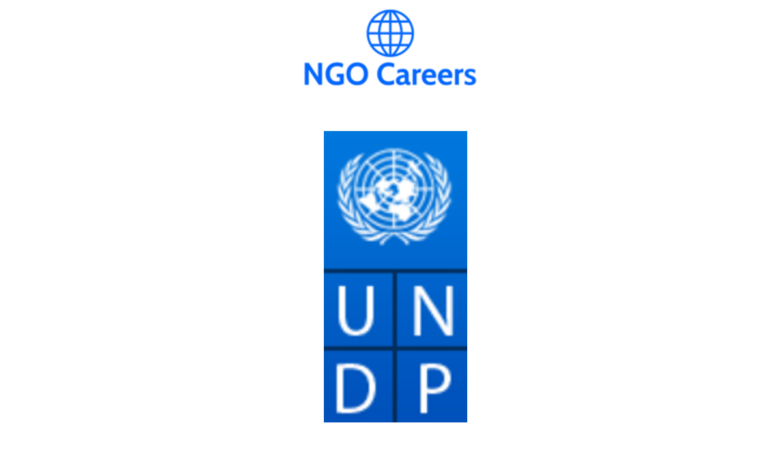
UNDP Data Analyst – Home Based
Data Analyst (International Consultant) to oversee the quantitative and qualitative data collection and lead data analysis to assess men’s life experiences, perceptions and perpetration of gender-based violence in Kazakhstan
EU Business Development Advisor – ActionAid International, Brussels, Belgium
| Location : | Home-based |
| Application Deadline : | 18-Jul-23 (Midnight New York, USA) |
| Time left : | 5d 15h 21m |
| Type of Contract : | Individual Contract |
| Post Level : | International Consultant |
| Languages Required : | English |
| Starting Date : (date when the selected candidate is expected to start) | 31-Jul-2023 |
| Duration of Initial Contract : | July-December 2023 |
| Expected Duration of Assignment : | 50 days |
UNDP is committed to achieving workforce diversity in terms of gender, nationality and culture. Individuals from minority groups, indigenous groups and persons with disabilities are equally encouraged to apply. All applications will be treated with the strictest confidence.
UNDP does not tolerate sexual exploitation and abuse, any kind of harassment, including sexual harassment, and discrimination. All selected candidates will, therefore, undergo rigorous reference and background checks.
Background
| The Spotlight Initiative (SI) is a global initiative of the United Nations which has received generous support from the European Union. Its aim is to eliminate all forms of violence against women and girls. The Initiative represents an unprecedented global effort to invest in gender equality and women’s empowerment as a precondition and driver for the achievement of the Sustainable Development Goals. The Spotlight Initiative Regional Programme for Central Asia and Afghanistan (Regional Programme) is fostering legal reforms, strengthening capacities of the respective institutions and women’s movements, promoting gender-equitable attitudes, and enhancing systems for collecting data on violence against women and girls. The Regional Programme partners with a broad range of actors, including civil society, donors, practitioners, academia, and media, to facilitate the elimination of harmful practices and advocate further gender transformation in the region. Find out more on www.spotlightinitiative.org The Spotlight Initiative Pillar 5 aims at closing the data gap on SGBV-related issues. Data gaps on many of the gender-related SDG Indicators is an overarching challenge in Central Asia. Limited knowledge remains on men’s perceptions regarding gender equality and SGBV – assumptions are regularly made, but activists seldom distinguish assumptions between age groups and seldom understand the reasoning behind how/if perceptions result in violence, and what are the root causes of these perceptions.Although data on the scope and scale of violence against women and girls is context specific, men are the primary perpetrators. To prevent violence, it is vital to understand men’s perpetration — how many men use violence against women, what types of violence they use, what factors are associated with their use of violence against women and why some men use such violence while others do not. Violence against women reinforces gender hierarchies and power imbalances between women and men within families and communities. To deepen understanding of the meaning and causes of men’s violence against women it is important to generate knowledge on how masculinities (identities and patterns of practices that shape gender norms for men) relate to men’s perceptions and perpetration of violence against women to prevent it. The study is premised on the well-documented hypothesis that violence against women is a manifestation of unequal gender relations and harmful manifestations of hegemonic masculinities governed by patriarchal beliefs, institutions, and systems. However, it is important to highlight that not all men are abusive and prone to exercise violence. In that sense, it will be also crucial to explore in what way men support gender equality and stand against SGBV.The Spotlight Initiative Regional Programme for Central Asia and Afghanistan will invest in conducting analysis of men’s life experiences, perceptions and perpetration of violence against women in Kazakhstan, as well as developing an analytical report with research findings. To complete this assignment, the Regional Programme will hire a Data Analyst (International Consultant level) to support the Research Coordinator and oversee the quantitative and qualitative data collection and lead data analysis. The Data Analyst will work closely with the Research Coordinator and a service provider (research company). The latter will be responsible for research tools translation, pilot survey, and data collection in Kazakhstan. | |
Duties and Responsibilities | |
| The Data Analyst will be responsible for the following tasks:1. Together with the Research Coordinator supervise and support the research company and provide timely and regular quality assurance on qualitative and quantitative data collection:a) Data Analyst will supervise and guide the quantitative and qualitative data collection process working closely with the research company, including establishment and implementation of the quality assurance procedure, provision of feedback on the pilot and data collection, and regular and timely checks of quantitative and qualitative data collection. Quality checks will include daily and/or weekly interactions and check-ins with the research company. The Data Analyst will communicate regularly with the Research Coordinator and UN Women team regarding progress of data collection and data quality. Note: The research company will be responsible for quantitative and qualitative data collection in Kazakhstan. The quantitative survey will be conducted using a population-based sample and will ensure the sample is representative of the population in the regions where the study is conducted, as well as ensure the reliability of data. The qualitative survey will be include in-depth interviews and focus group discussions. 2. Conduct data validation and analysis: based on the primary data collected (microdata in SPSS format and transcript data provided by the research company), the Data Analyst will develop the code book, code and analyse quantitative and qualitative data and prepare research findings, including data presented in tables and charts, along with interpretation of data, as well as appendices. The Data Analyst will contribute to and follow pre-determined qualitative and quantitative analysis plans, and carry out the analysis. The Data Analyst will respond to feedback and address proposed revisions to the data analyses from the Research Coordinator, UN Women, members of the Technical Advisory Group (TAG) and national stakeholders. The Data Analyst will share analysed SPSS data sets with the Research Coordinator and UN Women, following delivery of data analyses, including any necessary revisions. 3. Support the preparation of research report by compiling materials to document the research process, including, but not limited to: documents reviewed during the research methodology and data collection (e.g. questionnaires and interview and focus group guides), and interviewers’ supporting materials (e.g. training materials, informed consent forms, sampling design, etc.) and ethical and safety guidelines. The Data Analyst will draft several sections of the research report, including the findings chapter(s) with tables and charts, and interpretation of quantitative and qualitative data based on the deliverable #2. The Data Analyst will respond to feedback and proposed revisions from the Research Coordinator, UN Women, members of the TAG and national stakeholders. It is expected that the Data Analyst will work from home and will provide technical support to the Research Coordinator and the research company for data collection as outlined above. The communication will take place through emails, meetings in MS Teams, Zoom and other platforms.All results must be submitted within the specified timeline (see IV) and approved by the SI Project OfficerThis study should be completed between July (August) – December 2023. The Data Analyst is responsible for delivering the following outputs: Deliverables DeadlineW/days1. Reviewed and accepted all generated data files along with a brief data collection report on quantitative component by the research company:– reviewed submitted data from the pilot test of the household survey in SPSS for quality control;- ensured data quality checks, provided reviews, and feedback on quantitative data. Daily and/or weekly interactions and check-ins with the research company on status reports and actual quantitative data collected.- reviewed and accepted all original data files in a format that can be transferred into SPSS;- regular updates to the Research Coordinator and UN Women team provided on progress of data collection and the quality of data.By 31 October 2023. Reviewed and accepted all generated data files along with a brief data collection report on qualitative component by the research company:– reviewed submitted data from the pilot for quality control;- ensured data quality checks, provided reviews, and feedback on qualitative data. Daily and/or weekly interactions and check-ins with the research company on status reports and actual qualitative data collected;- reviewed translated transcripts of each in-depth interview and focus group discussion;- provided regular updates to the Research Coordinator and UN Women team on progress of data collection and the quality of data.By 20 November 2023153. Quantitative and qualitative data are coded and analysed. Data analysis is presented in tables and charts, along with interpretations. Research findings are drafted and submitted, along with required appendices.By 30 November 2023 15. Drafted several sections of the research report, including, but not limited to: methodology and data collection (e.g., questionnaires, informed consent form, sampling design, etc.). By 15 December 2023 5 Support of the Data Analyst by UN Women:The Data Analyst will work under the direct supervision of the SI Project Officer and the Research Coordinator, and in close cooperation with partners. Together with the SI Project Officer and the Research Coordinator, the Data Analyst will agree on the scope of work, deadlines, and a detailed work plan for the assignment. | |
Competencies | |
| Core Values:Respect for DiversityIntegrityProfessionalismCore Competencies:Awareness and Sensitivity Regarding Gender IssuesData analysisResearch skills (conducting qualitative and quantitative research)Effective Communication | |
Required Skills and Experience | |
| The selection process of the Data Analyst will be based on the following criteria:Education:Advanced university degree (Master’s or equivalent) in statistics, economics, gender studies, sociology or related field. Experience (supporting materials or link to the site where the document is available to learn about the candidate’s experience):At least 8 years of experience in conducting research and report writing in the fields of gender based violence, psycho-social fields, gender equality, women’s rights, human rights.At least 5 years of demonstrated ability to conduct complex data analysis, including frequencies, cross-tabulations, multivariate logistic regression and modelling;At least 5 years of experience in the use of statistical software such as Stata, SPSS, R is required;At least 5 years of experience in analysis of the qualitative data in the field of gender equality, social norms, behavioural changes and attitudes on GBV.Experience working with UN agencies or other international organizations on similar issues in the field of gender equality and human rights is an asset. Languages:Fluency in English is required.Evaluation processApplicants must meet the above minimum qualification requirements, which will be included in the technical evaluation process in the future. The next stage of the evaluation process will be maintained by cumulative analysis methodology of the technical proposal (70%) and the financial proposal (30%) of the applicant. Technical evaluation criteria: CriteriaMaximum pointsEducationAdvanced university degree (Master’s or equivalent) in statistics, economics, gender studies, psychology, sociology or related field. Work experience– At least 8 years of experience in conducting research, data analysis and report writing in the fields of gender based violence, psycho-social fields, gender equality, women’s rights, human rights (supporting materials or link to the site where the document is available to learn about the candidate’s experience)150At least 5 years of demonstrated ability to conduct complex data analysis, including frequencies, cross-tabulations, multivariate logistic regression and modelling (supporting materials or link to the site where the document is available to learn about the candidate’s experience)140 – At least 5 years of experience in the use of statistical software such as Stata, SPSS, R is required (supporting materials or link to the site where the document is available to learn about the candidate’s experience)__________________________________________________- At least 5 years of experience in analysis of the qualitative data in the field of gender equality, social norms, behavioural changes and attitudes on GBV (supporting materials or link to the site where the document is available to learn about the candidate’s experience) 100 140 – Experience working with UN agencies or other international organizations on similar issues in the field of gender equality and human rights is an asset100 LanguagesFluency in English20Maximum total technical evaluation scoring (70%):700Only candidates, who will score at least 490 (70%) out of the maximum 700 points during the technical evaluation process, will be qualified for financial proposal *.* Each candidate will be invited to submit consolidated financial proposal in USD (a ‘consolidated financial proposal’, which includes applicant’s all the expenses required to perform the assignment).The financial proposals of technically qualified candidates will be requested and will be weighted in terms of selection points as per the following formula:B = T + Clow / C x 300, where T is a universal technical score awarded to the evaluation of the proposal (only those proposals that pass 70% of the technical evaluation);C is the financial proposal of the candidate; andClow is the lowest financial proposal among all evaluated candidates.300 is the maximum financial point that can be obtained. The successful candidate will have accumulated the highest aggregated point (technical and financial scoring).Payment will be made only if the expected results will be achieved, agreed package of documents and reports provided without delay and approval by UN Women. Application process:All documents should be sent including:1. CV and UN Women Personal History form (P-11), which can be downloaded from http://www.unwomen.org/en/about-us/employment2. A technical proposal describing how the expected assignment will be performed. The technical proposal should also include:supporting materials or link(s) to documents, publications are available to learn about candidate’s experience in research, especially in the field of GBV, psycho-social fields, gender equality, women’s rights, and other related fields;supporting materials or link(s) to documents, publications to learn about candidate’s experience in ability to conduct complex data analysis, including frequencies, cross-tabulations, multivariate logistic regression and modelling; Previous experience on the use of statistical soft-ware such as Stata, SPSS, R is required;reference to the candidate’s experience in analysis of the qualitative data in the field of gender equality, social norms, behavioural changes and attitudes on GBV;reference to the candidate’s experience with UN agencies or other international organizations on similar issues in the field of gender equality and human rights.3. Financial proposal in USD, which includes all the costs and expenses that the Data Analyst will have to fulfil all the tasks under this Terms of Reference. The Data Analyst should also include the daily rate as lump sum in the submitted financial proposal.Only candidates who have passed the preliminary selection will be informed. There might be an online interview conducted by UN Women. Please note that the system will only allow one attachment, hence all supporting documents, e.g., P11 form, CV, technical and financial proposals must be scanned as one attachment. Applications without a completed UN Women P-11 form will be treated as incomplete and will not be considered for further evaluation. In July 2010, the United Nations General Assembly created UN Women, the United Nations Entity for Gender Equality and the Empowerment of Women. The creation of UN Women came about as part of the UN reform agenda, bringing together resources and mandates for greater impact. It merges and builds on the important work of four previously distinct parts of the UN system (DAW, INSTRAW, OSAGI, and UNIFEM), which focused exclusively on gender equality and women’s empowerment.At UN Women, we are committed to creating a diverse and inclusive environment of mutual respect. UN Women recruits, hires, trains, compensates and promotes regardless of race, religion, color, gender, gender identity, sexual orientation, age, ability, national origin, or any other basis covered by applicable law. All employment decisions are made on the basis of qualifications, competence, integrity and organizational needs. If you require any reasonable accommodation to support your participation in the recruitment and selection process, please include this information with your application. UN Women has a zero-tolerance policy for conduct that is inconsistent with the goals and objectives of the United Nations and UN Women, including sexual exploitation and abuse, sexual harassment, abuse of power and discrimination. All selected candidates will be required to adhere to UN-Women’s policies and procedures and the standards of conduct expected of UN-Women staff and will therefore be subject to a thorough background and background check. (A background check will include verification of academic credentials and employment history. Selected applicants may be required to provide additional information in order to conduct a background check.) |

